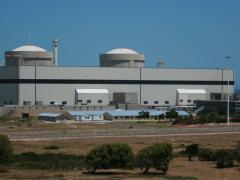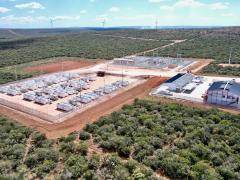South Africa’s Just Energy Transition is moving from policy debate to operational design with new frameworks now defining how electricity will be traded, transmitted and governed.
During the CIGRE 12th regional conference at the CSIR International Convention in Pretoria last week (October 14-17), experts presented proposals to advance the implementation of decarbonisation and energy market reform mechanisms. Discussions focused on the establishment of an Independent Transmission System and Market Operator (ITSMO), the design of adaptive governance structures and the integration of digital platforms to improve data management and market transparency.
Khanyisile Masemola, a PhD candidate in electrical engineering at the University of the Witwatersrand, presented a paper proposing a national adaptive governance model to operationalise the transition. The model introduces polycentric energy transition councils at national, provincial and municipal levels to coordinate between regulators, Eskom, independent power producers, project developers and communities. The model also promotes participatory digital platforms, transparent data sharing and continuous policy feedback loops to ensure accountability across the system.
“We are now entering the phase where the Just Energy Transition moves from moral discourse to operational design,” Masemola said.
She linked these governance reforms to the Electricity Regulation Amendment Act signed into law in August 2024. The Act establishes the ITSMO as a major reform that enables competitive power trading and open grid access. “This marks South Africa’s transition from a vertically integrated model to a multi-operator market – improving accountability and investment efficiency,” Masemola said.
Digitalisation is central to this next phase, added Fiona Oloo, Energy Systems Engineer at the CSIR. She noted that tools such as AI, IoT, blockchain-secured systems and participatory governance platforms will underpin transparent power trading and grid optimisation.
As governance structures and digital systems take shape, social participation and equity remain central to its legitimacy.
Free, prior and informed consent (FPIC) – the principle that communities must be consulted and agree to projects affecting their land or livelihood – and benefit-sharing are emerging as policy obligations tied to licensing and funding to ensure affected communities gain tangible benefits from transition projects, said Global Social Sustainability Specialist at Hitachi Energy Ilaria Gualtieri. “FPIC and local benefit-sharing are no longer optional if we want a just transition that lasts.”












